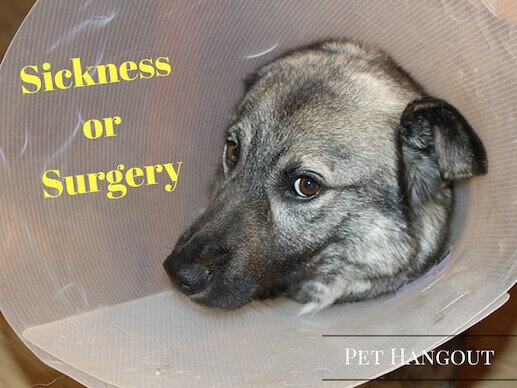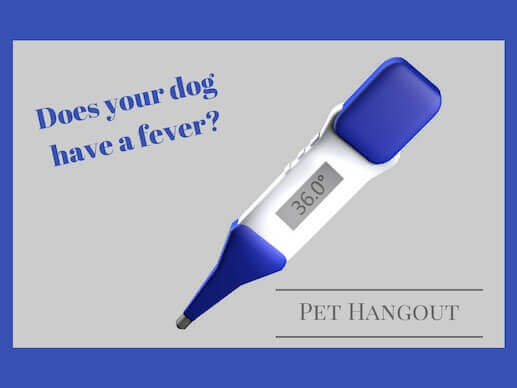Your shopping cart is empty!
MENU
- +
- Pet Lovers +
-
Cool Dogs+
-
Cool Cats+
- Grooming +
-
Health & Safety+
-
Home or Travel+
- +

Are you seeing dark or bright red spots in your dog’s stool?
There are numerous reasons why blood may be passing through your dog’s system. We know it can be very worrisome to see such a thing and of course, it isn’t normal. Let’s have a look at some of the causes of this brow-raising sight and explore your options for handling this problem with your furry friend.
There are mainly 2 types of blood:
1 - Dark red or almost black - Normally termed as Melena. Blood can turn dark as it processes through your dog’s system. For the most part, this type of blood is coming from the upper intestinal tract. It could be from digested blood into the intestine or due to internal bleeding that has passed into the intestine.
2 - Bright red blood - Normally termed as Hematochezia. This type of blood could be the result of constipation, excessive straining, or injury to the rectum. This type of blood would typically flow from the lower intestinal area.
Basically, the further the blood travels through your dog’s system, the darker the blood will be once it makes landfall.
If you feel that the blood makes up more than 50% of the poop, take your dog to the vet right now. Do not wait - it could be a matter or life or death for them. Don’t try to troubleshoot on your own. At this point, your pet is bleeding too much and needs emergency medical attention!
Now, if you are still reading… Let’s look at some specific things that can cause bleeding to show up in your pet’s poop and consider your next course of action.
Causes to explore:
1 - Diet - What did your dog eat? It could be that they have taken in something that has scraped their stomach, esophagus, or intestines. Worse yet, they could have an intestinal blockage that just cannot pass on its own. Or it could be that some spicy food has irritated their stomach and caused it to bleed.
We can’t say enough about policing what your dog eats. Their system is just not equipped to handle spicy food or objects.
What’s next:

2 - Has your pet had internal surgery recently? If so, it could be that they have begun to bleed internally. You should watch your pet closely for throwing up, fever, lethargic movement, etc.
What’s next:

3 - Has your pet had a recent injury? Were they hit by a car? Kicked by a mean human? Took a bad fall? These are all things that could have created an internal injury that is bleeding.
What’s next:

4 - Is your pet under stress? Have new animals moved into the household? Has their environment drastically changed lately? Have they been exposed to loud noises or thunderstorms lately? Stress can bring ulcers on for pets just as it does for humans. Also, some aspirins can cause your pet’s ulcer to bleed. Have you given them anything like this recently?
What’s next:

5 - Could your pet have gotten into chemicals or rat poison? This could cause blood clotting and the passing of dark stools.
What’s next:

6 - Have you given Pepto Bismol to your dog for an upset stomach or some other type of medicine? Medicines, especially Pepto Bismol, will turn their stool very dark. However, the good news is that it isn’t blood.
If you aren’t sure if it is blood, retrieve some of the stool and rest on a paper towel, coffee filter, or anything white and absorbent for a while. If the material has a red tinge to it afterward, then it is blood. If you cannot detect any red on the material, then it is not blood.
What’s next:
7 - Bacterial infections - Your dog can get infections in their kidney, bladder, intestines, and urinary tract just like we can. This causes swelling, irritation, tenderness, and sometimes bleeding. Are you noticing that he or she cannot get comfortable? Or having a difficult time pooping and/or urinating? Are they whining when they try to sit or lie down?
What’s next:

8 - Colon / Rectum Issues - There are a large variety of issues that could attack the colon and rectum which could cause bleeding. When is the last time your dog pooped? Could they be constipated? Are you seeing nay type of worm or parasite in their poop? Do they whimper or jerk when you press on their lower abdomen? Does this area appear swollen? Do you see any type of puss or discharge coming out of their rectum? Do they have matted hair around their rectum? Can you see anything bulging (like their rectum)? Do they have a history of any cancers?
What’s next:


9 - Cancerous tumors - Have you noticed any lumps or masses anywhere on your pet’s body? This could be a sign of a tumor. Cancerous tumors can cause black or darker stools.
What’s next:
10 - Parvo & other diseases - Parvo is a highly contagious and deadly virus that is spread from an infected dog or from contact with an infected object. Sady, this is a very common disease for puppies 6 weeks of age and older. Is your dog a puppy? Have they had their vaccination for this deadly disease? Are they also throwing up white or yellow foam? Do they have runny, bloody stools?
What’s next:

This post is a guideline to help you determine if you dog’s body can deal with their bleeding issue naturally or if they will need assistance from a veterinarian.
We make no claims of having vet experience or being medically trained to diagnose. These guidelines are meant to aid you in determining if and when you should head to the vet. The reasons for blood in your pet’s stool are numerous and range from very mild reasons to very serious and possibly deadly reasons.
Our best advice is to monitor your dog’s stool and their behavior to gain a sense of their overall wellbeing. And if you just aren’t sure what to do, always err on the side of caution and get your pet to the vet now.


Has this post helped you and your dog?
We are so eager to hear from you ... fill out a quick comment below...
...and would you be a "cool dawg" & click Pet Hangout's LIKE box now?
In the mood for a FREE Pet Grooming Glove today? Check out how to claim yours!